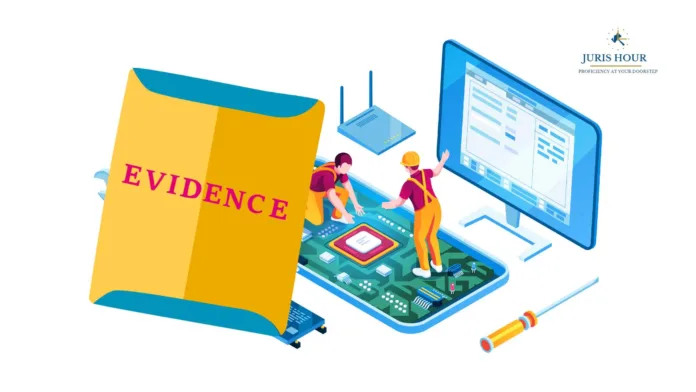In India’s digital-first enforcement landscape, electronic record seizures have become a critical tool for investigative agencies like the Enforcement Directorate (ED), Central Bureau of Investigation (CBI), Customs, and the Directorate of Revenue Intelligence (DRI). With digital footprints central to white-collar crimes, smuggling, and money laundering cases, India’s courts have emphasized standardised procedures and data integrity in handling such records.
Understanding Electronic Record Seizures
Electronic record seizure involves the collection of digital data—such as emails, documents, and transaction logs—for investigative purposes. Given the sensitive nature of this data, it’s imperative that seizures are conducted within a legal framework that respects individual rights and ensures data integrity.
Current Legal Framework
1. CBI Manual 2020
The CBI Manual, particularly Chapter XVI on Cyber Crimes, provides guidelines for handling digital evidence. Key provisions include:
- Hashing of Data: At the time of seizure, an image of the electronic document must be created and hashed. This ensures the integrity of the data and allows for verification that it hasn’t been tampered with.
- Providing Hash Values: The hash value of the confiscated electronic devices should be provided to the owners or custodians of such devices.
These measures aim to maintain the authenticity of digital evidence and protect the rights of individuals.
2. Supreme Court’s Directive
Recognizing the absence of comprehensive guidelines, the Supreme Court directed that, until new regulations are formulated, central agencies must adhere to the procedures outlined in the CBI Manual for the seizure of digital devices.The Court emphasized the need for the Centre to frame detailed guidelines within a stipulated timeframe.
3. Bharatiya Nagarik Suraksha Sanhita (BNSS), 2023
The BNSS introduced Sections 105 and 185, mandating the electronic recording of search and seizure processes. This move aims to enhance transparency and accountability during investigations.
Read More: 10% Pre-Deposit On Only Penalty For Filing 1st GST Appeal Yet To Be Notified
Roles of Key Agencies
Enforcement Directorate (ED)
The ED is responsible for enforcing economic laws and fighting economic crime in India. In cases involving money laundering and foreign exchange violations, the ED often seizes electronic records to trace illicit financial flows.
However, the Supreme Court has issued interim orders restricting the ED from accessing or copying data from seized electronic devices without proper authorization, highlighting concerns over privacy and due process.
Central Bureau of Investigation (CBI)
As India’s premier investigative agency, the CBI handles high-profile cases, including corruption and cybercrimes. The agency follows the CBI Manual for procedures related to the seizure of electronic records, ensuring that evidence collection aligns with legal standards.
Directorate of Revenue Intelligence (DRI)
The DRI, India’s apex anti-smuggling intelligence agency, uses digital evidence in investigations related to:
- 1. Trade-based money laundering
- 2. False documentation of high-value imports/exports
- 3. International supplier communications
Key seizure practices include:
- 1. Cloning data using forensic tools
- 2. Maintaining verifiable hash logs
- 3. Adhering to CBI Manual’s safeguards on search and seizure
The DRI frequently targets digital records stored on company servers, laptops, and cloud services relevant to customs fraud and NDPS Act violations.
Customs Department
Under the Customs Act, 1962, Customs officers have the authority to search and seize goods, including electronic records, if they suspect violations such as smuggling or intellectual property infringements. The IPR (Imported Goods) Enforcement Rules, 2007, empower Customs to confiscate infringing goods, ensuring the protection of intellectual property rights.
Challenges and the Need for Comprehensive Guidelines
Despite existing protocols, the lack of uniform guidelines across agencies has led to inconsistencies in the seizure of electronic records. Concerns have been raised about potential violations of privacy and the admissibility of digital evidence in courts.
The Supreme Court’s directive underscores the urgency for the Centre to establish clear, comprehensive guidelines that balance investigative needs with individual rights.
Case Laws
ED can’t copy laptop, mobile data: Supreme Court
The Supreme Court in the Santiago Martin case restrained the Enforcement Directorate (ED) from accessing and copying content from electronic devices seized during searches conducted on “lottery king” Santiago Martin, his relatives and employees.
DRI To Copy Relied Upon Documents, Avoid Unnecessary Retention of Seized Devices: Delhi High Court
The Delhi High Court in the case of Rakesh Kumar Gupta Versus Directorate Of Revenue Intelligence has observed that the Directorate Of Revenue Intelligence (DRI) must copy relied upon documents and avoid unnecessary retention of seized devices throughout the proceedings.

